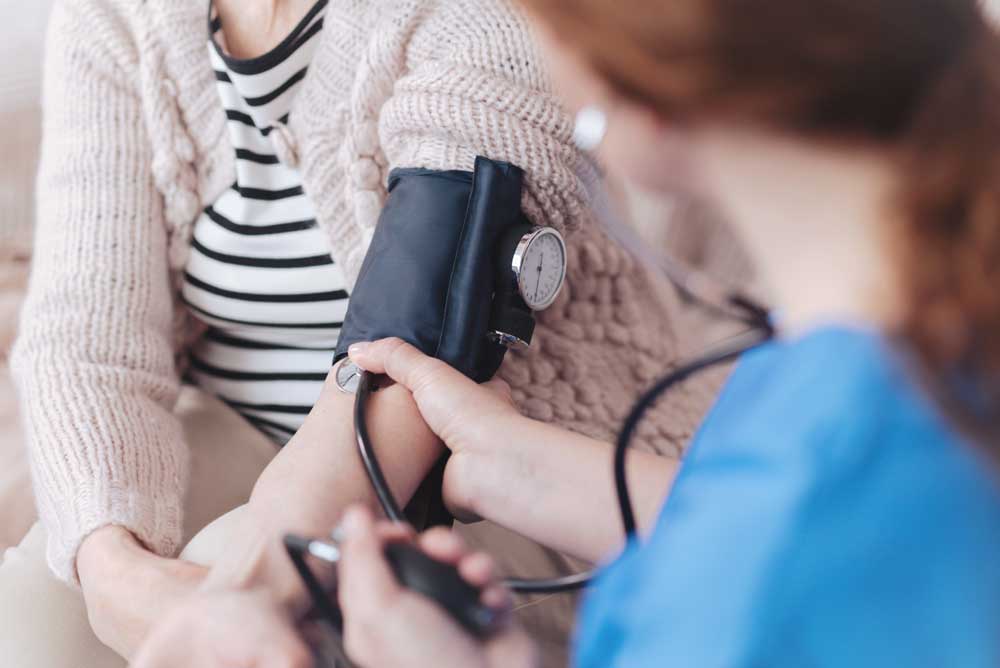No Results Found
The page you requested could not be found. Try refining your search, or use the navigation above to locate the post.

If you’re someone who spends most of the night tossing and turning and checking the time on the clock, you’re definitely not alone. According to the National Institute of Health, there are an estimated 50 to 70 million Americans chronically suffering from some kind of sleep disorder. That’s a lot of people walking around cranky and groggy!
People troubled by insomnia experience difficulty falling asleep, staying asleep, or getting back to sleep when they wake up at a very early hour. These sleep disturbances cause stress and anxiety, and make every day activities like working, remembering, and thinking clearly very challenging. Insomnia also typically causes irritability and fatigue. Persistent insomnia may also be a contributing factor of depression.
Insomnia is a complex condition that is still being studied. So far we do know that there are certain conditions that make people more prone to insomnia:
– Age – people over 60 are more susceptible
– Gender – females, on average, are more susceptible
– A history of depression can make you more susceptible
– Jet lag
– Shift work
– Anxiety
– Grief
– Depression
– Stress
– Stimulants like nicotine, caffeine, and alcohol taken too soon before bed
– An overactive thyroid
– Steroid use
– Certain prescription medications (if you’re currently taking any, speak with your doctor about insomnia side effects)
– Restless leg syndrome
– Menopause and hot flashes
– Gastrointestinal conditions such as heartburn
– Conditions that make it hard to breathe like asthma and sleep apnea
– Chronic pain
As I mentioned, anxiety and depression are two of the most common causes of chronic insomnia. In these cases, cognitive behavioral therapy (CBT) can help. CBT targets the thoughts and actions that are disrupting your sleep night after night. This therapeutic strategy encourages good sleep habits while relieving anxiety.
Some therapists may use a combination of relaxation therapy and biofeedback to reduce anxiety in clients. Others may employ different strategies like breathwork and positive thinking.
Counselors recognize that each client is an individual with individual needs. One-on-one talk therapy will help a counselor determine the specific causes – in some cases there may be multiple culprits – and put together a comprehensive strategy for relief.
If you are suffering from insomnia and would like to explore practical coping strategies for getting a better night’s sleep, please contact us. We have a counselor available to discuss how you might get the rest you need.

When talking about depression, a lot of people forget that depression is an illness that requires proper attention and treatment. If you’re depressed, it can be incredibly frustrating to hear things like “Just get over it”, “You’re being really dramatic”, “You have to be strong”, “Learn to deal with it”, “Happiness is a choice”. You might start to think of things like ‘Why can’t I just get over it’? We can stop ourselves from doing destructive things like putting our hand in a fire, but when it comes to depression, it’s a bit difficult to just ‘stop’. There are a number of reasons why ‘get over it’ statements like this don’t help. Here are some of the best reasons why.
Depression is real and painful. Just because you can’t see or touch it doesn’t make it any less real. If you suffer from depression or know someone who does, working with a therapist is a good start to overcoming your depression. We have counselors available to help. Contact us to book a therapy session.

On an almost daily basis we hear stories of female sexual harassment and abuse in the media. Sadly, male sexual abuse is fairly common, but the issue is under-reported by the media and society in general.
One US-based study found that 1 in 6 boys experience some form of sexual abuse by the age of 18. Other research suggests the ratio may be as high as 1 in 4.
To start, most men are embarrassed to be the victim of sexual abuse, particularly when it is perpetrated by other men. In our culture, men are supposed to be invulnerable and not feel emotional pain. In other words, guys are supposed to be the strong, silent type. It simply goes against the silent rules of being a man to acknowledge trauma and admit that you are suffering.
As a result, male victims of sexual abuse shove their feelings down and deny what happened. This repression of experience and emotion can and often does lead to isolation, anger, sadness, shame, guilt, and fear. Post-traumatic Stress Disorder (PTSD), major depression, anxiety, and substance abuse are also common among victims of male sexual abuse.
If you are the victim of sexual abuse, understand that you are far from alone. As the topic becomes more mainstream, there is less judgement by those who don’t understand how a man could be victimized in such a way. Education regarding male sexual abuse and demystifying misconceptions surrounding rape is essential to help male survivors heal and speak out.
While more needs to be done to bring this subject to mass awareness, it’s important that individual victims seek support. A therapist will be able to help you deal with your complex emotions and offer strategies to move through and past feelings of depression and anxiety. In time, healing can and does occur.
If you or someone you know is a male victim of sexual abuse and would like to discuss treatment options, please get in touch. A counselor from our team would be more than happy to help. We have two counselors available with an EMDR specialty and one who is a certified IATP Clinical Trauma Professional.
The page you requested could not be found. Try refining your search, or use the navigation above to locate the post.

According to statistics from the National Alliance on Mental Illness, each year about 1 out of every 5 Americans adults suffer from one form of mental illness or the other. Mathematically, that works out to 48.3 million of the total American adult population, and with a figure that high, it’s easy to see that you are not alone.
If you are presently living with any mental illness, there is hope. With the proliferation of tech (in the form of mental health apps), each and everyone living with depression, anxiety, or life stress can now access low cost support that can augment their work in individual counseling.
These apps strive to improve mental health by harnessing therapeutic processes and activities such as cognitive behavioral therapy (CBT), meditation, relaxation, etc. They can be a great supplement to the work you are doing with your counselor!
There are countless types of these mental health apps that you can easily download from Google Play store or Apple Store, but being that variety also comes with the attendant issue of difficulty in making a choice, with this article, we have stepped in to take away the pain and confusion by helping you handpick the top 10 mental health apps from around the internet.
For each app listed below, we have gone ahead to explain the notable features and benefits, state the price (where applicable) and also provide you with download links.
Please note that the under listed apps are, in no way, purported to be replacements for professional treatment. They are meant to provide aid and support.
With that out of the way, here are our top 10 mental health apps for Android and iOS.
This app is specifically designed to soothe those going through relationship stress. Designed by the popular Gottman Institute, just as the name suggests, the app comes in the form of a deck of cards which contains questions you can ask your spouse concerning your relationship. The Gottman approach to couple’s counseling is world renowned and now you can have access to Gottman’s relationship and communication skills in app format! This app also suggests fun things to do and say to keep the fire ever blazing in your relationship.
With a rating of 4.7 and 4.8 stars on Play Store and iTunes respectively and tens of thousands of downloads, you can’t go wrong with this app when it comes to easing relationship stress.
The app is free on both iTunes and Play Store. Download from iTunes here and download from Play Store here.
Insight Timer is a multiple award-winning app for meditation, anxiety, sleep, and mindfulness. If you are looking for a way to reduce anxiety, manage stress, calm the mind, sleep deeply and improve happiness, then this is the app for you.
With upwards of 10 new guided meditations added for free every day, coupled with awesome music tracks from renowned artists available on the app to use in your sessions, it will be an awesome experience joining millions of other users in trying out this app.
Presently, the app has been downloaded over 1 million times on Play Store, and it is free to download with in-app purchases as a means for the developers to make their income. You can download the app on Play Store here and on iTunes here
Looking to improve your motivation and drive? SuperBetter is an all-rounder app that aims to help users build strength and resilience to overcome tough obstacles and challenges in life. Are you going through a stressful relationship, wanting to beat depression, overcome anxiety, survive a divorce, or get a job? SuperBetter is a good motivator to try.
You can download SuperBetter for free on Play Store here and here for iOS.
Headspace is a nicely designed app that aims to help you with meditation and mindfulness.
Apart from teaching you how to sleep mindfully, breathe and meditate, it is also designed to help you increase your focus level. There are also exercises on anxiety relief, stress management, and happiness.
The app is free with in-app purchases. Download it for Android here and for iOS here.
Do you notice how anxiety or stress impacts you in both mind and body? Just as the name suggests, the iChill app is designed to help with whole-body stress management. The app is built to cut across several demographics: children, teens, adults, veterans, and more. iChill is also teaches users skills from the Trauma Resiliency Model.
The app is totally free. Download for Android here and for iOS here.
This is a meditation and mindfulness app that breathing exercises and guided meditation to help with calming anxiety and sleeping better. It is also described to manage depression, tame anxiety and strengthen focus.
Download it for free on Play Store here and here. The app is loaded with in-app purchases.
Relaxio is an app development company that has a consortium of apps that are all centered on meditation, and sleep.
If your stress levels are high, then you might want to consider checking out one of their apps at relaxio.net. You can download any of the apps that meet your specific needs from the site.
Tagged the world’s most beloved AI assistant, the app uses quick therapeutic conversations to help you monitor your general emotional health. This is a good app to consider if your goal is to tame stress, depression, and anxiety.
The app is loaded with a beautiful mood tracker and uses Cognitive Behavioral Therapy (CBT), Acceptance and Commitment Therapy and other techniques to try to get you to maintain a calm mind. The app is free with in-app purchases. Get the Android version here and the iOS version here.
Mindshift is a free app designed by Anxiety Canada Association using Cognitive Behavioural Therapy (CBT) as a core technology to help you tackle anxiety. The app is also designed as a tool to aid you to relax more, be more mindful and aid you build more effective ways of thinking.
Download the Android version here and the iOS version here.
This is an app developed by a Clinical Psychologist that is geared towards helping prevent self-harm.
The password secured app has 4 major categories (Distract, Comfort, “Express Yourself” and Release) that are strategically placed to help you progressively get out of the self-harm mindset.
The app is totally free, and you can get the Android version here. You can as well download the iOS version here.
Interested in reading more from our blog? Check out one of these additional blog articles:

We invited our friend, Eve Parker at Simply Yoga, to share this guest blog, which provides information about the positive impact of yoga on a person's mental health and overall wellness. After reading the article, if you’d like more information about Simply Yoga, we...

The hard work and unpredictability that makes parenting so rewarding can also cause a great deal of anxiety. Here are some simple ways to bring yourself to a place of calm. Make a To-Do List Ruminating on worries can cause lots of stress. Clear your mind by...

If you’re someone who spends most of the night tossing and turning and checking the time on the clock, you’re definitely not alone. According to the National Institute of Health, there are an estimated 50 to 70 million Americans chronically suffering from some kind of...

Have you ever wondered what’s happening in your body when anxiety and stress are triggered?
Stress and Anxiety are “fight or flight” responses, which allow us to react faster and more appropriately, depending on the situation. These have been incorporated in us for centuries; they were part of what kept us alive in the face of various predators.
Today, however, we express these responses even though the “dangers” around us are entirely different. Sometimes, as in the case of anxiety, we just “assume” the “danger” and trigger this reaction, where many symptoms come to the surface.
Our brain controls many of our organism’s responses, voluntarily or involuntarily. In principle, we perceive the warning or danger signal, the initial trigger, where our brain understands that it must prepare the body to flee or fight quickly.
In order to do so, it acts through a system called the autonomic nervous system (ANS), to which it sends a signal. This ANS is in turn divided into sympathetic and parasympathetic, which regulate different responses.
The reactions that occur in stress and anxiety have to do with the release of important hormones (such as adrenaline and noradrenaline) by the sympathetic nervous system. These products travel through our body triggering a set of different reactions that will end up “activating” it.
Now, let us quickly analyze some of the effects of this hormone in the context of a real-life scenario: an imminent danger is coming towards you (for example, a person tries to grab your purse). In this case, your reaction might be to flee. What does your body need to respond appropriately?
1) Heart rate: It must be increased to enhance the oxygen and nutrients that reach your muscles and tissues to maintain the flight response.
2) Blood vessels: Pressure must increase in the arteries and veins to improve blood flow to the muscles. This vasoconstriction is the origin of headache under conditions of stress or anxiety.
3) Lungs: In order to give more oxygen to the blood and thus reach the lungs, the airways must be widened and the breath rate increased.
4) Sweating: This is not nervousness. Under this response, your body temperature increases to improve metabolic reactions and promote other biological reactions, all these to respond better to the “danger” that approaches. Sweating is a compensation mechanism for this increase in temperature.
5) Intestine: It is time to stop everything! It is not time to eat or digest; it is time to flee from danger. Therefore, the intestinal contents are stopped, through spasms, which can cause pain.
6) Kidney: In a fear-inducing emergency, the body produces less urine in order to preserve the liquids we have. The same goes for salivary glands. Our brain isn’t sure how long the danger will last, so it goes into conservation mode.
These, and many other responses are necessary to be able to “run away” properly, and all are mediated by the sympathetic nervous system. This is part of what you suffer when you are under stress or with anxiety. They are also limited responses that only last a few minutes – if the original “dangerous” stimulus disappears” – but that may remain a little longer in people who constantly suffer from it.
Since our body responds to perceived dangers (Ex.: Worried thoughts about what someone is thinking about you) in the same way as it does to genuine physical dangers (Ex. Rabid animal), it’s up to you to communicate with your body to assist it in deescalating the threat.
Here are some quick tips for sending signals to your nervous system that will help it deescalate:
If you’d like help with stress or anxiety, a counselor with Star Meadow Counseling is available to help!
Would you like to read more of our blogs about anxiety? Check out one of the links below!